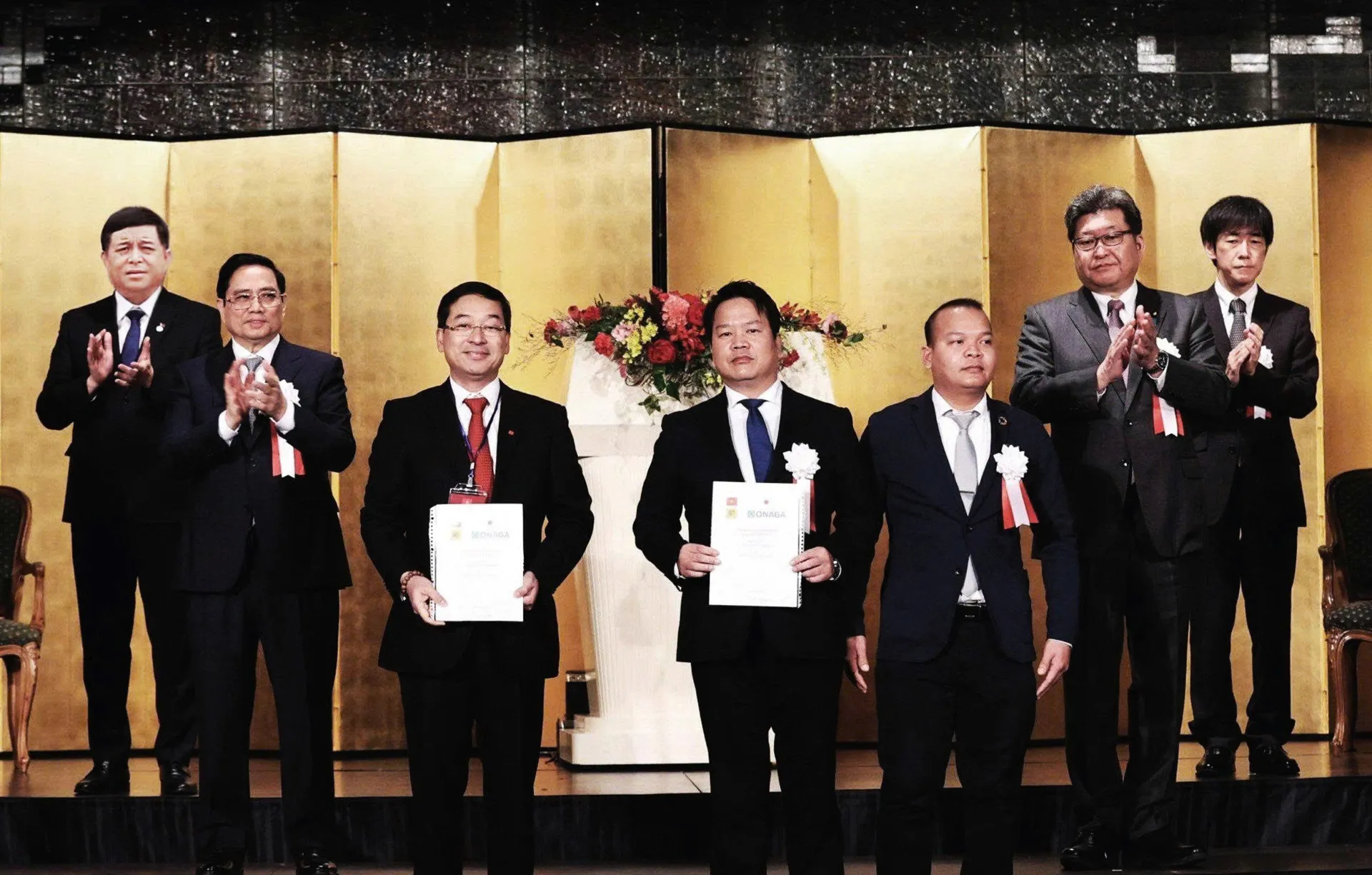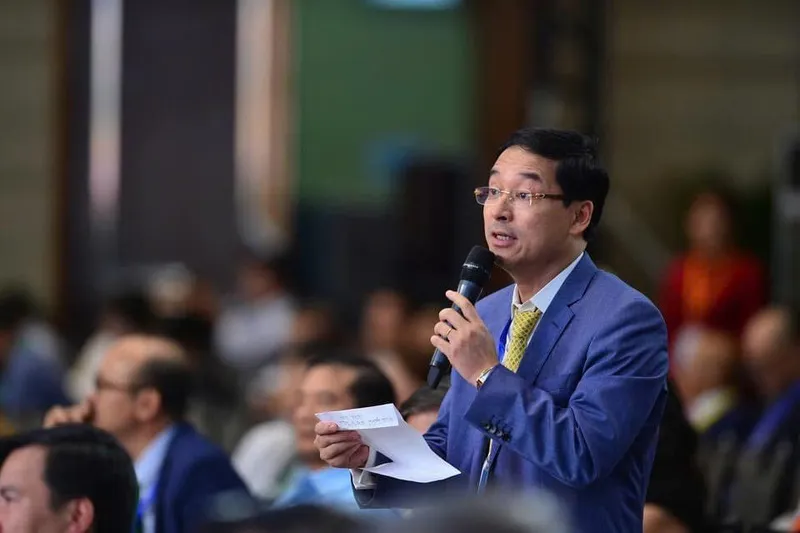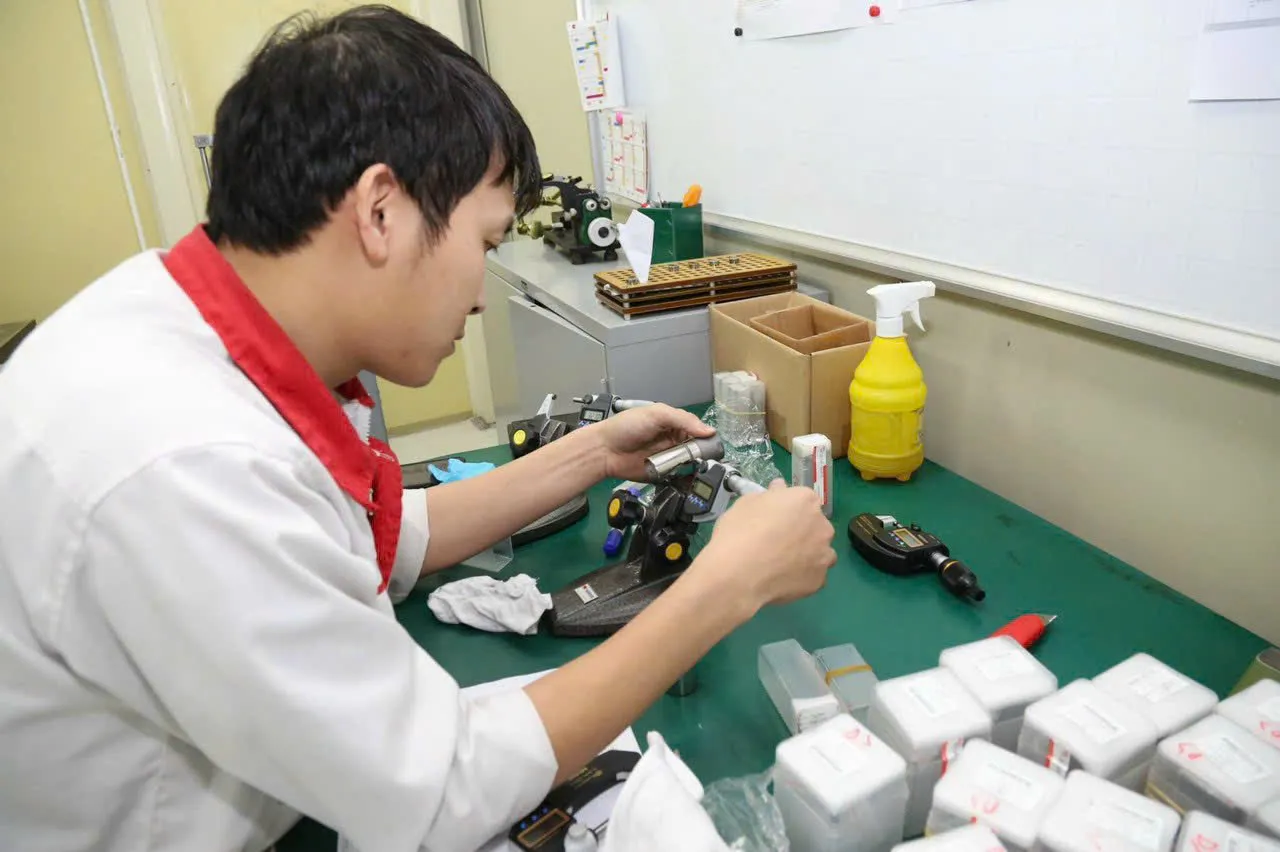Vietnam’s Supporting Industry Enterprises: A Golden Opportunity to Integrate into the Global Supply Chain
Preferential policies and international cooperation programs are opening up a “golden opportunity” for Vietnam’s supporting industry (SI) enterprises to strengthen production capacity and gradually integrate more deeply into global supply chains. The development of industrial complexes (Techno Parks) is expected to meet the needs of both domestic and foreign enterprises, increase the localization rate, and thereby enable more effective participation in international production networks.

Leaders of HANSIBA and N&G Group Vietnam signed an investment cooperation agreement to develop the HANSSIP Technopark complex. Photo: Phong Van
Mr. Nguyen Hoang – Chairman of the Hanoi Supporting Industry Business Association (HANSIBA) and Chairman of the Board of N&G Group – believes that Vietnam’s SI sector is facing unprecedented growth opportunities. According to him, components and spare parts are core product groups, supplying almost all major manufacturing industries such as automobiles, motorcycles, mechanics, and electronics. Several SI sectors have already achieved high localization rates, giving domestic enterprises a competitive edge over imports.
A Major Opportunity
Currently, there are more than 2,000 SI enterprises nationwide operating across various sectors: manufacturing, maritime economy, high-tech agriculture, and dual-use products. In Hanoi alone, there are more than 900 SI enterprises, 320 of which meet international standards and are capable of supplying to global production networks.
 Mr. Nguyen Hoang – Chairman of the Hanoi Supporting Industry Business Association. Photo: Khac Kien
Mr. Nguyen Hoang – Chairman of the Hanoi Supporting Industry Business Association. Photo: Khac Kien
However, SI enterprises still face many barriers. Businesses are seeking clearer guidance in government decrees, especially regarding land, finance, technology, and international partner connections. Mr. Hoàng also emphasized the urgent need for a Law on Supporting Industries to create a comprehensive and unified legal framework nationwide.
Capital remains the biggest “bottleneck.” Compared to ASEAN countries such as Thailand, Malaysia, and Indonesia, interest rates for Vietnam’s SI enterprises are nearly double. High borrowing costs limit the competitiveness of Vietnamese products in international markets.
In this context, Hanoi is striving to implement multiple solutions to achieve the GRDP growth target for 2025, from 6.5% to 8%, as set out in the City People’s Council Resolution. Many SI enterprises have proactively partnered with Japanese and FDI companies to produce high-tech components, including aerospace parts exported to the United States, demonstrating increasingly strong integration capabilities.
Upgrading to Join the Global Chain
In recent years, the Government has continuously improved policies to support SI development, particularly through a “strategic quartet” of resolutions: Resolution 57 (science – technology, innovation, and digital transformation), Resolution 59 (international integration), Resolution 66 (law-making and enforcement), and Resolution 68 (private sector development). In addition, Decree 205/2025/NĐ-CP, which amends and supplements Decree 111/2015/NĐ-CP on SI development, has provided clearer directions and approaches for businesses.

Enterprises’ efforts still need support to form value chains. Photo: Khac Kien
Supporting industry infrastructure is also being strengthened. The Hanoi South Supporting Industry Park (HANSSIP) – the first SI park dedicated to high-tech industries – has completed Phase 1 with 100% occupancy. Many enterprises from Japan, Taiwan (China), South Korea, and Vietnam have invested in building internationally standardized factories.
According to Mr. Nguyễn Hoàng, establishing Techno Parks will be a strategic step to enhance competitiveness, reduce import dependence, and increase localization, especially targeting the U.S. market. This model will be designed based on orders from both Vietnamese and international partners, ensuring compliance with global production standards.
HANSIBA is actively promoting a Vietnam–Japan Techno Park with strong interest from the Embassy of Japan. The Embassy has sent official communications to Vietnamese authorities, including Hanoi, proposing supportive policies for both Japanese and Vietnamese enterprises. Under this framework, Vietnamese businesses will gain access to advanced Japanese technologies, preferential funding from the Japanese government, and high-skilled workforce training.
With internationally standardized infrastructure, strong government support, and practical preferential policies, Vietnam’s supporting industry enterprises are expected to take deeper steps into global supply chains, thereby elevating their position on the world’s industrial map.
Source: Kinh te & Đo thi – https://kinhtedothi.vn/doanh-nghiep-cong-nghiep-ho-tro-viet-nam-co-hoi-vang-hoi-nhap-chuoi-cung-ung-toan-cau.851413.html